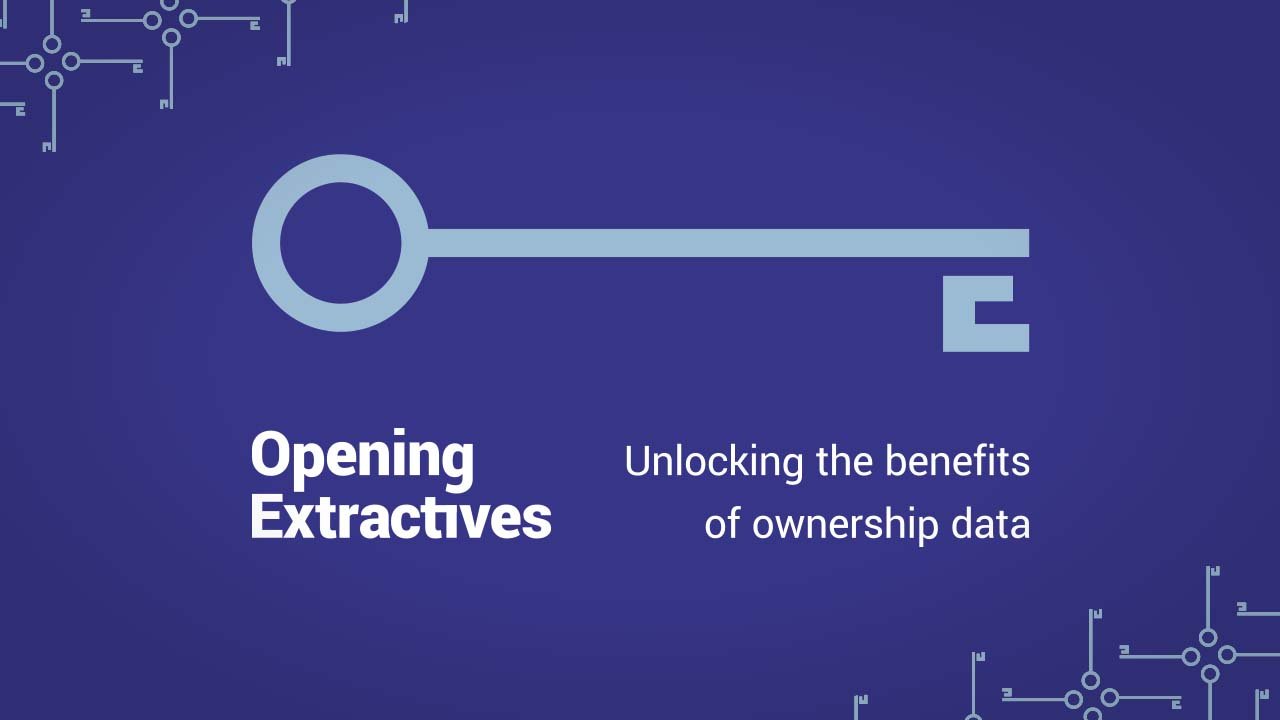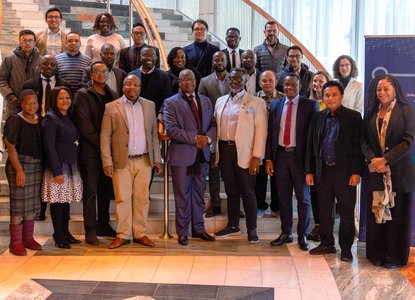Zambia commits to beneficial ownership transparency

Zambia officially launched its participation in the Opening Extractives programme on 10 December 2021. The event affirmed the country’s commitment to beneficial ownership transparency. Government ministries, civil society and company representatives emphasised the contribution of the programme in enhancing beneficial ownership reforms and strengthening natural resource governance.
In Zambia, Opening Extractives will help enable access to quality beneficial ownership data that strengthens accountability by improving governance of energy and mining revenues, supporting business and curtailing corruption and illicit financial flows.
A robust legal basis for reform
Zambia has made meaningful progress in ensuring transparent management of the extractives sector. In November 2017, the Government of Zambia amended the Companies legislation to include beneficial ownership disclosure. The Companies Act No. 10 of 2017 provides for the disclosure of beneficial owners and also the creation of a register of beneficial owners that will be kept at the Patents and Companies Registration Agency (PACRA). The government developed regulations for the implementation of the legislation in March 2019.
Beneficial ownership transparency: the way forward for Zambia
Speaking at the launch, key stakeholders explained why beneficial ownership transparency is critical for Zambia.
“We want Zambians to feel the impact of this industry,” said Zambian Minister of Mines and Minerals Development, Honourable Paul Kabuswe, referencing sentiment among Zambian citizens that they were not benefiting from the country’s natural resource endowment, a situation which had given rise to illegal mining activities. In his keynote speech, he mentioned that Opening Extractives was in keeping with the government’s objectives of economic recovery, building trust and development opportunities through reducing risks such as corruption and tax evasion.
The government would issue a comprehensive statement on the policy direction of the mining sector, which would include measures to ensure that the country benefits in terms of taxation. Furthermore, it remained committed to implementing the EITI requirement on contract transparency, recognising the benefits of ensuring compliance with the terms of contracts and licences by enabling citizens to understand the agreed terms for extractive projects.
Human Resources and Administration Director, Ministry of Mines, Mr Moses Nyirenda, speaking on behalf of the Permanent Secretary, highlighted that the programme would place significant value on enhancing Zambia’s ability to attain its full potential and benefit from the country’s mineral wealth. It would support the government in obtaining the highest value for their extractive contracts and help ensure compliance with anti-corruption requirements.
Mr. Edmond Kangamungazi, Vice Chairperson of the Zambia EITI Council (ZEC) explained that beneficial ownership transparency is an important component in industry practices and regulation. He mentioned several cases in the mining and other sectors where taxation, licensing and related decisions were made in a manner that suggested the possibility of hidden ownership by politically exposed persons, thereby leading to loss of revenue through poorly negotiated contracts or diversion of funds for private gains.
An explanatory presentation from the Senior Companies Inspector of the Patents and Companies Registration Agency (PACRA), Mr Chewe Chilufya, included reference to the risks of misuse of legal entities, common ways in which companies are controlled by beneficial owners and existing legal provisions for disclosure of beneficial owners. He also touched on the duties of companies and penalties for non-compliance, in addition to some of the challenges being experienced in achieving full disclosure and access.
Key areas for Opening Extractives support
Ms. Karabo Rajuili, Country Programmes Director at Open Ownership, explained that the programme will harness the collective efforts of government, civil society and industry stakeholders through data use initiatives. A scoping study would be undertaken in Zambia to review systems for collecting data, quality control, managing and sharing of beneficial ownership data.
In his vote of thanks, Mr Edward Lange, Member of the Multi-Stakeholder Group (MSG) of Zambia EITI remarked that civil society organisations considered beneficial ownership as a tool to eradicate corruption, minimise and eradicate illicit financial flows. He further outlined the value of the EITI over the years in enabling civil society to focus beyond data, on other aspects of the mining sector, including sustainable development.
The launch created momentum for stakeholder engagement in taking forward the commitments made during the event. Next steps for implementation of the programme are raising awareness on beneficial ownership transparency to government, civil society, mining industry players and capacity building among various stakeholder groups.


